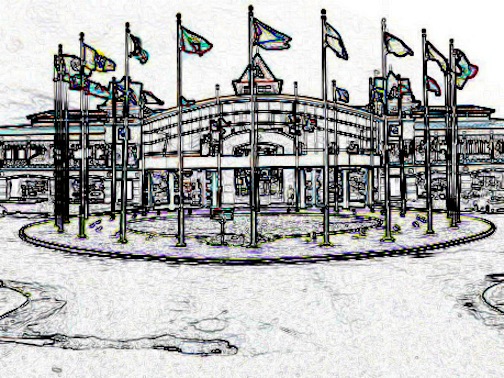By Zhivargo Laing
CJ Contributor
The Caribbean Community (CARICOM) is celebrating 40 years of existence. But who is really celebrating?
Certainly not the masses of Caribbean peoples, plagued with high levels of unemployment, crime, debt and anxiety about the future.
Officialdom is celebrating, the small band of government leaders, regional civil servants and technocrats who interact with the organization with some regularity.
But should more people in the region be celebrating? The short answer to this question is yes.
CARICOM espouses noble ideals and pursues a worthwhile objective. Its desire to encourage regional integration is laudable and if achieved could bring solid social and economic benefits to the region.
The regional body has provided a sound forum for discussing issues that affect all countries of the region. It has also been a great venue for coordinating collective regional responses to global developments or natural disasters which threaten its member countries.
It is also a source of information gathering, research and policy consideration that has benefited the region. These alone give some reason to celebrate its existence, even if the masses of people might not rush to do so.
What might result in robust celebrations 40 years from now is if the regional body can overcome its most difficult challenge and achieve what is probably its greatest opportunity: having its members truly act as a unit when it really matters and providing practical solutions to some of the region’s critical problems.
It is easy to speak as one voice when it comes to promoting humanitarian efforts such as those in Haiti. On the other hand, when the cruise lines flex their muscles, despite the rhetoric of a unified front, some members of the community bolted, pursued their own interest and left regionalism on an island by itself.
A regional body like CARICOM will only be as useful and strong as the willingness of its members to act as one when it matters most. And, it matters most when economic gains or losses are at stake. If this cannot be overcome, its celebrations in the future will continue to be limited to the few rather than the masses for whom the organization was created in the first place.
CARICOM’s great opportunity is to achieve certain practical results for the region such as transportation which across the region remains woeful and is holding back the economic growth and development prospects of the community.
Imagine if CARICOM could improve regional air transport within the community and from Latin America, providing enormous business expansion and economic activity, especially in tourism.
LIAT, Caribbean Airlines and Suriname Airways are all regional efforts that have not produced the results desired. The issue has been highlighted by CARICOM’s Council for Trade and Economic Development (COTED) in a meeting or two but both the public and private sectors are seeking urgent attention to this matter. It is on CARICOM’s radar but needs to be on its serious sustained action plan.
Forty years at any effort can be quite meaningful, especially if one has had some successes in that period. The Bahamas knows this, having been independent from Britain for that exact period of time as of July 10, 2013.
CARICOM too knows this, having led the regional integration effort for 40 years and having done so with some positive results.
CARICOM’s finest hour has yet to chime, and if it overcomes the challenge of imperfect unity and seizes the opportunity to achieve some practical results on behalf of the community, it could have a glorious celebration on its 80th birthday.
Zhivargo Laing, former Minister of State for Finance with the Government of The Bahamas, is an economist, consultant and motivational speaker.
